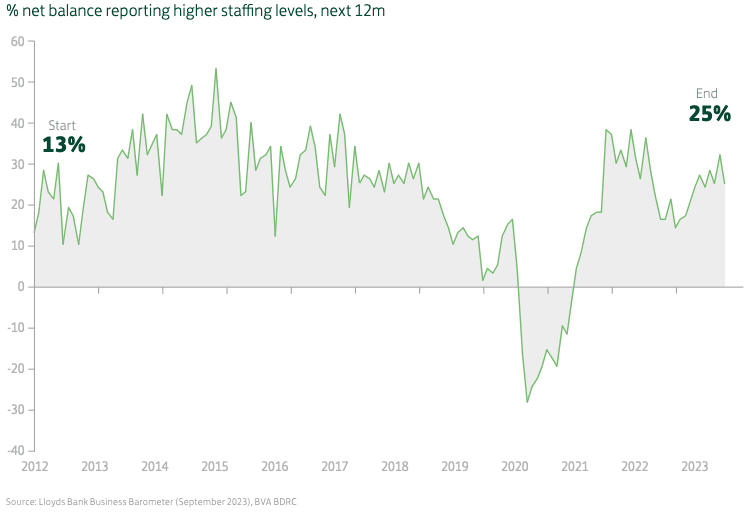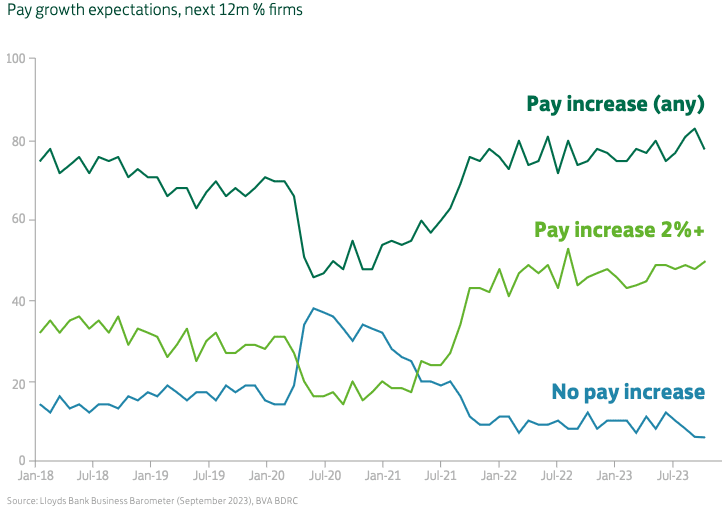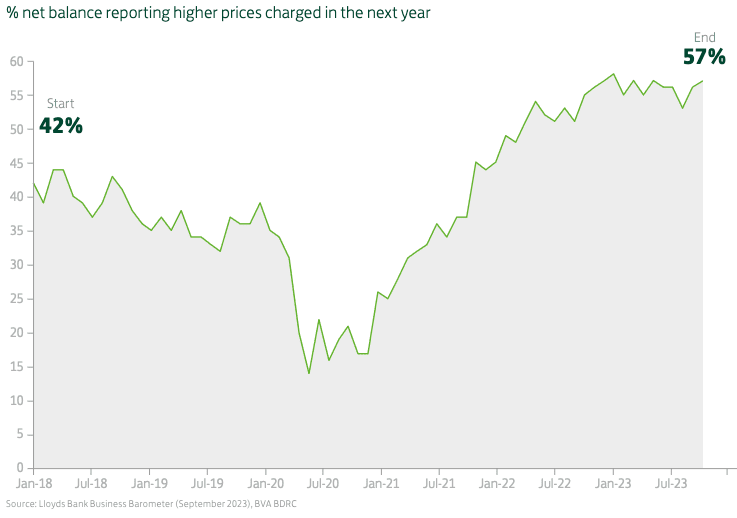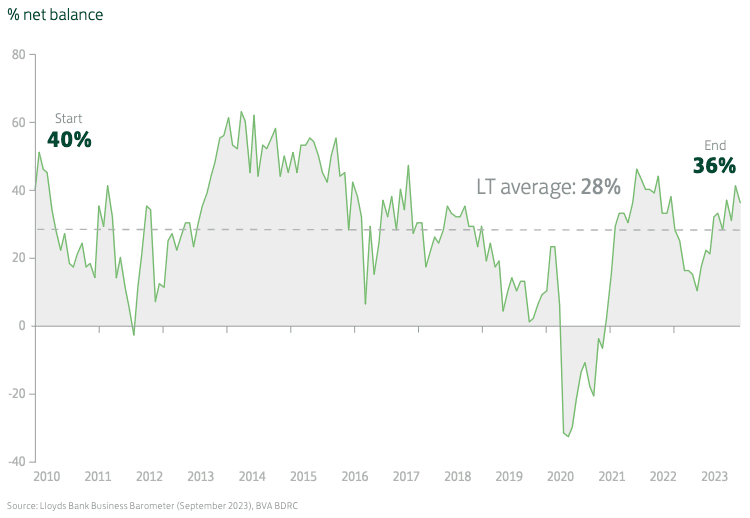Wages To Stay Elevated and Defy Bank of England Shows Business Barometer Survey
- Written by: Gary Howes

Image © Adobe Stock
A monthly survey of UK businesses reveals that firms continue to expect to raise prices and offer wage increases, evidence that domestic inflationary pressures will likely remain elevated.
The Lloyds Bank Business Barometer for September revealed a high proportion of firms (when compared with pre-Covid) continued to report that they expect to offer their employees a pay increase in the year ahead.
The findings were released a week after the Bank of England's decision to halt its interest rate hiking cycle, saying inflation was now on track to fall sharply into year-end. The Bank also dismissed official data that showed wages rose at a record pace in July, saying it was at odds with other survey evidence that suggested wage pressures were easing.
The official data is not at odds with this survey, suggesting the Bank is proving inconsistent in its approach to 'following the data' when making policy decisions.
The Business Barometer shows evidence of continued labour market stickiness - a key driver of domestic core inflation - with hiring intentions remaining stronger than at the start of the year as firms indicate that they attach high priority to attracting and retaining staff.
There was a smidgen of evidence of some easing in conditions when compared to August as 45% (down from 50%) anticipated a higher headcount, while 20% (up from 18%) planned to reduce their workforce.
Above: "Staffing expectations pull back" - Lloyds Bank Business Barometer.
Despite slightly softer hiring intentions, 78% of businesses said they expect to award a pay increase in the next 12 months, compared with 68% in 2019 before the pandemic.
This suggests the inflationary impulse provided by wage increases is not fading.
Above: "High proportion expect to offer pay increases" - Lloyds Bank Business Barometer.
In a further blow to the Bank of England, firms' own price expectations for the year ahead meanwhile edged up marginally, as firms prioritise maintaining or increasing their profit margins, said the Business Barometer.
The survey reveals a slight increase in the net balance to 57% from 56% reflecting a fall in the share intending to cut their prices to 3% from 5%. That more than offset a marginal decline in the proportion of businesses planning to raise their prices to 60% (from 61%).
Above: "Own price expectations remain lofty" - Lloyds Bank Business Barometer.
Based on this survey alone, signs of an economic slowdown look slim with September business confidence edging back from an eighteen-month high and remaining above the long-term average.
Indeed, the Q3 average is still the highest since Q1 2022.
The Business Barometer notes the decline in confidence is consistent with recent monthly fluctuations with the rises generally bigger than any subsequent fallback.
Above: "Confidence eased from 18-month high" - Lloyds Bank.
And confidence is expected to improve says Hann-Ju Ho, an economist at Lloyds Bank: "Although the economic environment remains uncertain with inflation and interest rate pressures playing their part, the recent decision by the Bank of England to leave interest rates unchanged is likely to help businesses feel more upbeat about the future, which may underpin confidence in the last three months of the year."
The survey's findings on the tightness of the UK labour market and wage pressures are also evident in the Employer Skills Survey from the Department of Education, released Thursday.
The survey also revealed an increasing number of employers are reporting vacancies that are proving harder to fill owing to a lack of skills.
23% of businesses reported at least one vacancy, an increase from 20% in 2017 with 36% of all vacancies in 2022 considered skill-shortage vacancies (hard to fill due to a lack of skills/qualifications) compared to just 22% in 2017.
"The figures reveal what we are seeing when talking to employers in all sectors - a worrying and deteriorating skills gap in the UK's workforce which should be cause for concern. We are seeing significant numbers of workers falling out of the workforce because of illness and employers must react to prevent this experienced cohort from becoming economically inactive," says David Pye, a director at consultancy Broadstone.







